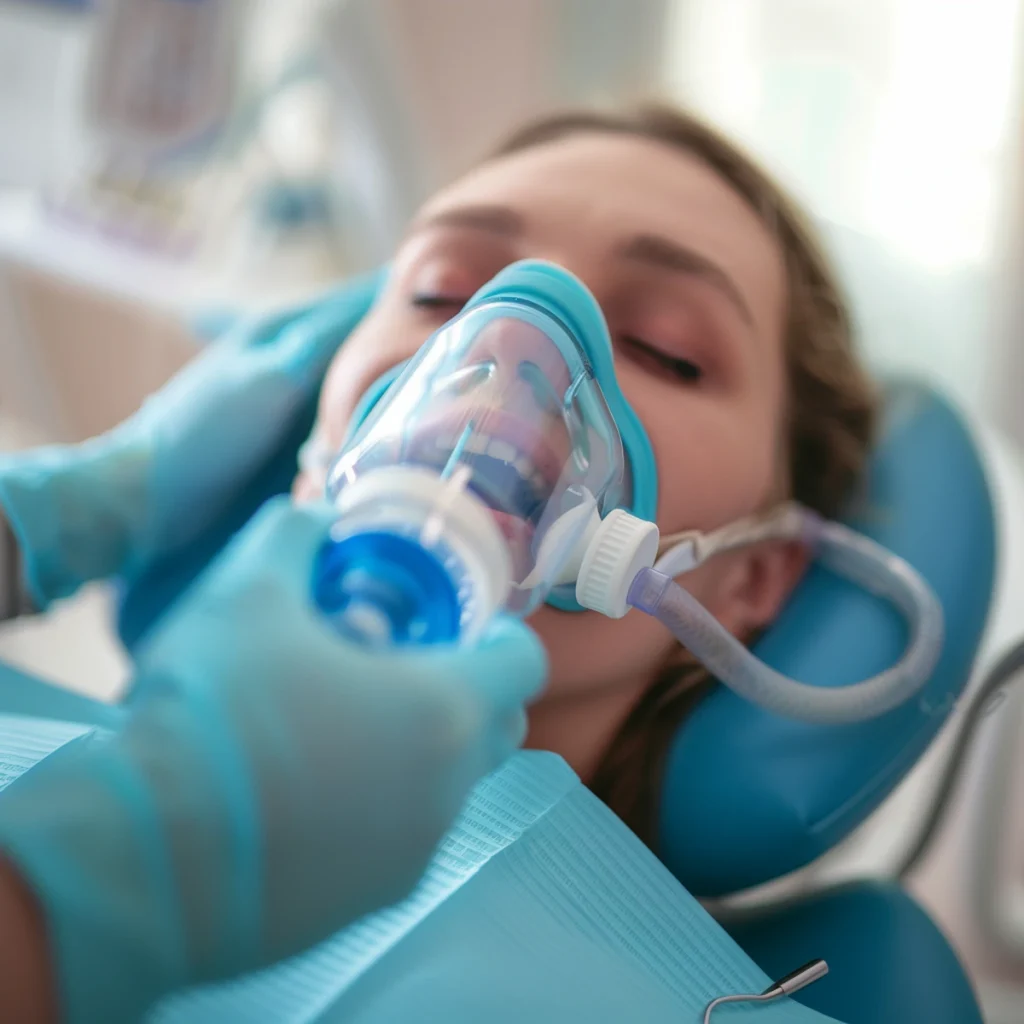Preparing for your sedation dentistry appointment ensures a smooth and safe experience. Contact us today to schedule an appointment.
If you’ve scheduled a sedation dentistry appointment, you take an important step toward stress-free, pain-free dental care. Whether you experience dental anxiety, have a strong gag reflex, or need extensive dental work, sedation ensures a comfortable experience. However, preparing correctly is essential for a safe, smooth, and effective procedure.
If you have questions or need to schedule an appointment, contact us today!

Why Choose Sedation Dentistry?
Sedation dentistry is ideal for patients who:
- Experience severe dental anxiety or phobia
- Have difficulty sitting still for long procedures
- Need extensive dental work in one visit
- Have a low pain tolerance or sensitive teeth
- Have a strong gag reflex
- Have special needs or medical conditions that make dental care challenging
Depending on your level of anxiety and the procedure being performed, your dentist will recommend the most suitable type of sedation for you.
Types of Sedation in Dentistry
- Nitrous Oxide (Laughing Gas)
- A mild sedative inhaled through a mask.
- Helps you relax but wears off quickly.
- You can drive yourself home afterward.
- Oral Sedation
- A prescribed pill taken before the appointment.
- Induces a deeper state of relaxation but keeps you awake.
- You will need someone to drive you home after the procedure.
- IV Sedation
- Administered directly into the bloodstream for deep relaxation.
- You may have little to no memory of the procedure.
- Requires someone to accompany you home.
- General Anesthesia
- You are fully unconscious during the procedure.
- Ideal for patients with extreme anxiety or complex dental needs.
- Requires a trained dental anesthesia provider.
- You must have a companion to take you home and monitor your recovery.
How to Prepare for Your Sedation Dentistry Appointment
1. Follow Fasting Instructions
Depending on the type of sedation, you may need to avoid food and drink for a certain period before your appointment:
- Nitrous Oxide: No fasting needed.
- Oral Sedation & IV Sedation: Avoid food and liquids for at least 6-8 hours before your appointment.
- General Anesthesia: Follow your dentist’s specific fasting guidelines, usually 8+ hours of no food or drinks.

2. Arrange for Transportation
If you’re receiving oral sedation, IV sedation, or general anesthesia, you cannot drive yourself home. Arrange for a responsible adult to drive you and stay with you until you fully recover.
3. Wear Comfortable Clothing
Choose loose-fitting, comfortable clothing to stay relaxed during your procedure. Avoid wearing tight sleeves, as an IV may be used for sedation.
4. Take or Avoid Medications as Directed
Discuss your current medications with your dentist before the appointment. Certain medications may need to be adjusted or avoided before sedation.
5. Plan for Rest After Your Appointment
- Clear your schedule and take the rest of the day off.
- Have a calm, comfortable place to recover.
- Drink plenty of fluids and stick to soft foods if needed.
6. Have a Support System in Place
After deep sedation, you may feel groggy for several hours. It is best to have a family member or friend help you with basic tasks, such as getting home and staying hydrated.
7. Address Any Concerns with Your Dentist
If you have questions or concerns about the sedation process, don’t hesitate to ask your dentist beforehand. Understanding the procedure helps ease anxiety and ensures you’re fully prepared.
What to Expect on the Day of Your Appointment
Before the Procedure:
- Arrive on time and in comfortable clothing.
- Follow any fasting or medication instructions given by your dentist.
- Your dental team will review your medical history and confirm the sedation plan.
During the Procedure:
- You’ll receive the chosen sedation method to help you relax or sleep.
- Your dental team will monitor your vital signs throughout the procedure.
- Most patients experience little to no memory of the treatment.
After the Procedure:
- You may feel drowsy or groggy depending on the sedation used.
- Follow post-care instructions provided by your dentist.
- Stick to soft foods and liquids if your mouth is numb.
- Avoid alcohol, heavy meals, and strenuous activities for at least 24 hours.
How Long Does It Take to Recover from Sedation Dentistry?
Recovery Times by Sedation Type:
- Nitrous Oxide: Wears off within minutes—you can resume normal activities immediately.
- Oral Sedation: Effects last several hours—rest for the day.
- IV Sedation: Full recovery may take 24 hours.
- General Anesthesia: Recovery varies but often requires a full day of rest.
During your recovery, drink water, eat soft foods, and take any prescribed medications as directed.
Preparing for your sedation dentistry appointment ensures a smooth and safe experience. By following pre-appointment guidelines, arranging for support, and planning for recovery, you’ll be able to receive necessary dental care without fear, stress, or pain.
Making Your Sedation Dentistry Experience Stress-Free
At The Dental Anesthesia Center, we specialize in pain-free, anxiety-free dentistry for patients in St. Louis and St. Charles. If you have questions or need to schedule an appointment, contact us today! Call now to learn how sedation dentistry can completely stress-free your next visit!

